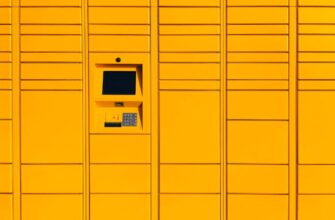- Introduction: The Privacy Dilemma in Cryptocurrency
- What Is CoinJoin? Decentralized Anonymity Explained
- How CoinJoin Enhances Your Financial Privacy
- Safety Risks: When CoinJoin Services Become Hazardous
- Best Practices for Secure CoinJoin Usage
- CoinJoin vs. Alternatives: Comparing Privacy Tools
- Frequently Asked Questions (FAQ)
- Is CoinJoin Legal?
- Can Law Enforcement Trace CoinJoin Transactions?
- Which CoinJoin Services Are Safest?
- Does CoinJoin Work for Ethereum or Altcoins?
- How Much Does CoinJoin Cost?
- Conclusion: Privacy Requires Diligence
Introduction: The Privacy Dilemma in Cryptocurrency
As Bitcoin and other cryptocurrencies gain mainstream adoption, privacy concerns have surged. Blockchain transactions are permanently visible, allowing anyone to trace wallet activity. This transparency fuels demand for tools like CoinJoin—a method to anonymize transactions by mixing coins with other users. But critical questions arise: Is it safe to use a CoinJoin service? What risks should you consider? This guide examines the security landscape, balancing privacy benefits against potential pitfalls.
What Is CoinJoin? Decentralized Anonymity Explained
CoinJoin is a privacy technique allowing multiple Bitcoin users to combine transactions into a single batch. Instead of sending coins directly from A to B, participants contribute inputs to a joint transaction where outputs are redistributed. This obscures the link between sender and receiver. Unlike centralized mixers (which hold user funds), CoinJoin protocols like those in Wasabi Wallet or Samourai Wallet execute peer-to-peer mixes without third-party custody. Key characteristics include:
- Non-Custodial Design: Funds never leave your control during mixing.
- Mathematical Obfuscation: Statistical analysis makes tracing individual coins computationally difficult.
- Open-Source Frameworks: Most tools are transparently auditable (e.g., JoinMarket).
How CoinJoin Enhances Your Financial Privacy
CoinJoin counters blockchain surveillance by breaking “transaction graphs”—the maps analysts use to track funds. Here’s how it protects you:
- Breaks Address Clustering: Hides patterns linking your wallets.
- Defeats Chainalysis: Complicates tools used by exchanges to flag “tainted” coins.
- Reduces Snooping Risks: Prevents merchants, employers, or hackers from profiling your spending.
Safety Risks: When CoinJoin Services Become Hazardous
While CoinJoin itself is a protocol, safety depends heavily on implementation. Key risks include:
- Malicious Software: Fake wallets or phishing sites can steal funds or keys.
- Regulatory Scrutiny: Regulators may flag mixed coins, leading to exchange freezes (e.g., Binance compliance checks).
- Timing Attacks: If few users participate, de-anonymization becomes easier.
- Trusted Setup Vulnerabilities: Flaws in coordination servers could leak metadata.
In 2021, the U.S. Treasury sanctioned Blender.io—a centralized mixer—highlighting regulatory hostility toward privacy tools. While CoinJoin differs structurally, the stigma persists.
Best Practices for Secure CoinJoin Usage
Minimize risks with these safety protocols:
- Use Reputable Wallets Only: Opt for audited, open-source tools like Wasabi, Samourai, or Sparrow Wallet.
- Enable Tor/VPN: Mask your IP address during transactions.
- Verify Downloads: Check PGP signatures to avoid tampered software.
- Start Small: Test with minimal amounts before large mixes.
- Diversify Mixes: Combine CoinJoin with other privacy methods (e.g., Lightning Network).
CoinJoin vs. Alternatives: Comparing Privacy Tools
How does CoinJoin stack up against other options?
- Centralized Mixers: Higher risk (custodial) but simpler. Avoid due to exit scams.
- Privacy Coins (Monero/Zcash): Stronger anonymity but less liquidity than Bitcoin.
- Lightning Network: Off-chain transactions offer speed but require technical setup.
Frequently Asked Questions (FAQ)
Is CoinJoin Legal?
Yes, in most jurisdictions. However, regulators increasingly monitor mixing activity. Using CoinJoin isn’t illegal, but exchanges may question deposits of mixed coins.
Can Law Enforcement Trace CoinJoin Transactions?
While challenging, sophisticated blockchain analysis (e.g., clustering heuristics) can sometimes de-anonymize transactions. Large mixes with many participants offer stronger privacy.
Which CoinJoin Services Are Safest?
Non-custodial wallets with robust reputations: Wasabi Wallet (for desktop) and Samourai Wallet (mobile). Avoid web-based “instant” mixers.
Does CoinJoin Work for Ethereum or Altcoins?
CoinJoin is Bitcoin-centric. Ethereum users rely on solutions like Tornado Cash (now restricted) or Aztec Protocol.
How Much Does CoinJoin Cost?
Fees range from 0.1% to 3% based on the wallet and mix size. Some implementations charge coordinator fees; others are free but slower.
Conclusion: Privacy Requires Diligence
CoinJoin is a powerful tool for Bitcoin privacy when used correctly. Its non-custodial nature reduces theft risks compared to centralized mixers, but regulatory and technical threats persist. By selecting trusted software, anonymizing your connection, and understanding local laws, you can mitigate dangers. Remember: No solution guarantees absolute anonymity—layered security is essential. As crypto evolves, so must your approach to safeguarding financial sovereignty.








